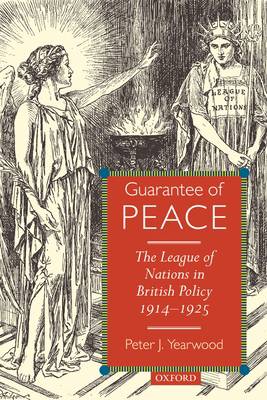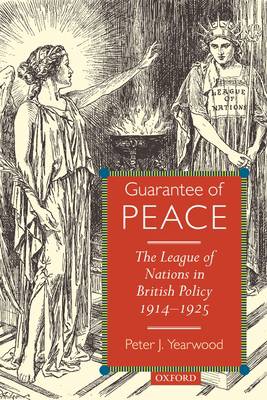
- Afhalen na 1 uur in een winkel met voorraad
- Gratis thuislevering in België vanaf € 30
- Ruim aanbod met 7 miljoen producten
- Afhalen na 1 uur in een winkel met voorraad
- Gratis thuislevering in België vanaf € 30
- Ruim aanbod met 7 miljoen producten
Zoeken
Guarantee of Peace
The League of Nations in British Policy 1914-1925
Peter J Yearwood
Hardcover | Engels
€ 179,95
+ 359 punten
Omschrijving
Peter Yearwood reconsiders the League of Nations, not as an attempt to realize an idea but as an element in the day-to-day conduct of Britain's foreign policy and domestic politics during the period 1914-25. He challenges the usual view that London reluctantly adopted the idea in response to pressure from Woodrow Wilson and from domestic public opinion, and that it was particularly wary of ideas of collective security. Instead he examines how London actively promoted the idea to manage Anglo-American relations in war and to provide the context for an enduring hegemonic partnership. The book breaks new ground in examining how London tried to use the League in the crises of the early 1920s: Armenia, Persia, Vilna, Upper Silesia, Albania, and Corfu. It shows how in the negotiations leading to the Draft Treaty of Mutual Assistance, the Geneva Protocol, and the Locarno accords, Robert Cecil, Ramsay MacDonald, and Austen Chamberlain tried to solve the Franco-German security question through the League. This involves a re-examination of how these leaders tried to use the League as an issue in British domestic politics and why it emerged as central to British foreign policy. Based on extensive, detailed archival research, this book provides a new and authoritative account of a largely misunderstood topic.
Specificaties
Betrokkenen
- Auteur(s):
- Uitgeverij:
Inhoud
- Aantal bladzijden:
- 395
- Taal:
- Engels
Eigenschappen
- Productcode (EAN):
- 9780199226733
- Verschijningsdatum:
- 25/04/2009
- Uitvoering:
- Hardcover
- Formaat:
- Genaaid
- Afmetingen:
- 236 mm x 160 mm
- Gewicht:
- 771 g

Alleen bij Standaard Boekhandel
+ 359 punten op je klantenkaart van Standaard Boekhandel
Beoordelingen
We publiceren alleen reviews die voldoen aan de voorwaarden voor reviews. Bekijk onze voorwaarden voor reviews.











